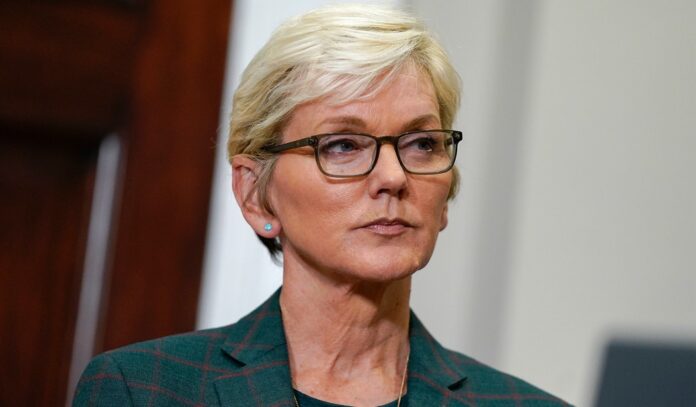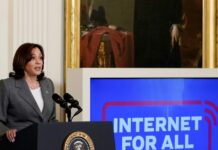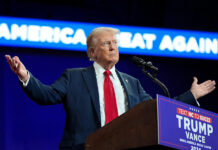It appears that Energy Secretary Jennifer Granholm’s recent electric vehicle stunt might cause even more headaches for the Biden administration. House Republicans are launching an investigation into her ill-fated trip which resulted in the police being called after her vehicle blocked a charging spot.
The road trip was intended to highlight President Joe Biden’s White House’s investments in green energy and the promote the use of electric vehicles. It did not go well, and Republicans are demanding answers.
Republicans on the House Oversight and Accountability Committee are probing Energy Secretary Jennifer Granholm over her recent electric vehicle (EV) road trip where police were called on her and her team.
Oversight Chairman James Comer, R-Ky., and Oversight Subcommittee on Economic Growth, Energy Policy, and Regulatory Affairs Chairman Pat Fallon, R-Texas, informed Granholm in a letter Tuesday morning that they were investigating the June road trip which they said was aimed to “boost the charade of the effectiveness of green energy.”
“This taxpayer-funded publicity stunt illustrates yet again how out of touch the Biden Administration is with the consequences of policies it has unleashed on everyday Americans,” Comer and Fallon wrote to Granholm.
“Committee Republicans remain committed to preserving freedoms like vehicle consumer choice in the face of an unproven, burdensome, and expensive Biden Administration push to force all Americans to buy EVs,” they continued. “We request documents and information to understand the purposes, costs, and consequences of your summer 2023 EV road trip.”
The trip, which lasted four days and went from North Carolina to Tennessee, sought to showcase the potential of electric vehicles and make the case for clean energy. Instead, it only underscored the challenges and limitations of electric vehicle infrastructure in the United States. RedState’s Nick Arama reported:
The trip revealed immediately that the system is not ready to handle even what they have to deal with now, much less with the number of vehicles that you would have to cope with with the complete switchover that they want.
But between stops, Granholm’s entourage at times had to grapple with the limitations of the present. Like when her caravan of EVs — including a luxury Cadillac Lyriq, a hefty Ford F-150 and an affordable Bolt electric utility vehicle — was planning to fast-charge in Grovetown, a suburb of Augusta, Georgia.
Her advance team realized there weren’t going to be enough plugs to go around. One of the station’s four chargers was broken, and others were occupied. So an Energy Department staffer tried parking a nonelectric vehicle by one of those working chargers to reserve a spot for the approaching secretary of energy.
That did not go down well: a regular gas-powered car blocking the only free spot for a charger?
In fact, a family that was boxed out — on a sweltering day, with a baby in the vehicle — was so upset they decided to get the authorities involved: They called the police.
Granholm, during a hearing before the House Science and Technology Committee, acknowledged the failed experiment and blamed it on “poor judgment on the part of the team.” The probe seeks to further scrutinize the decision-making process surrounding the road trip.
House Republicans rightly referred to the road trip as a “stunt.” But it makes one wonder what such an investigation would turn up. Perhaps it would highlight how taxpayer funds were used to do PR for the clean energy industry amid the ongoing UAW strike. Other than that, it doesn’t seem that a probe would yield much fruit, except to have another cudgel to use against a much-deserving Biden administration.
However, it could also highlight questions about the government’s role in promoting clean energy and electric vehicles. Some Democrats have voiced support for essentially forcing Americans to switch over to electric vehicles using the power of the government. While clean energy might be a desirable outcome, it seems foolhardy to suggest that the state should bring this about using force. Indeed, if people want the nation to eventually switch over to using electric vehicles, persuasion would likely be more effective than compelling Americans to embrace them. Perhaps those seeking to bring about this change would be better served by building out the infrastructure to accommodate that type of paradigm shift instead of ramming it down our throats.




